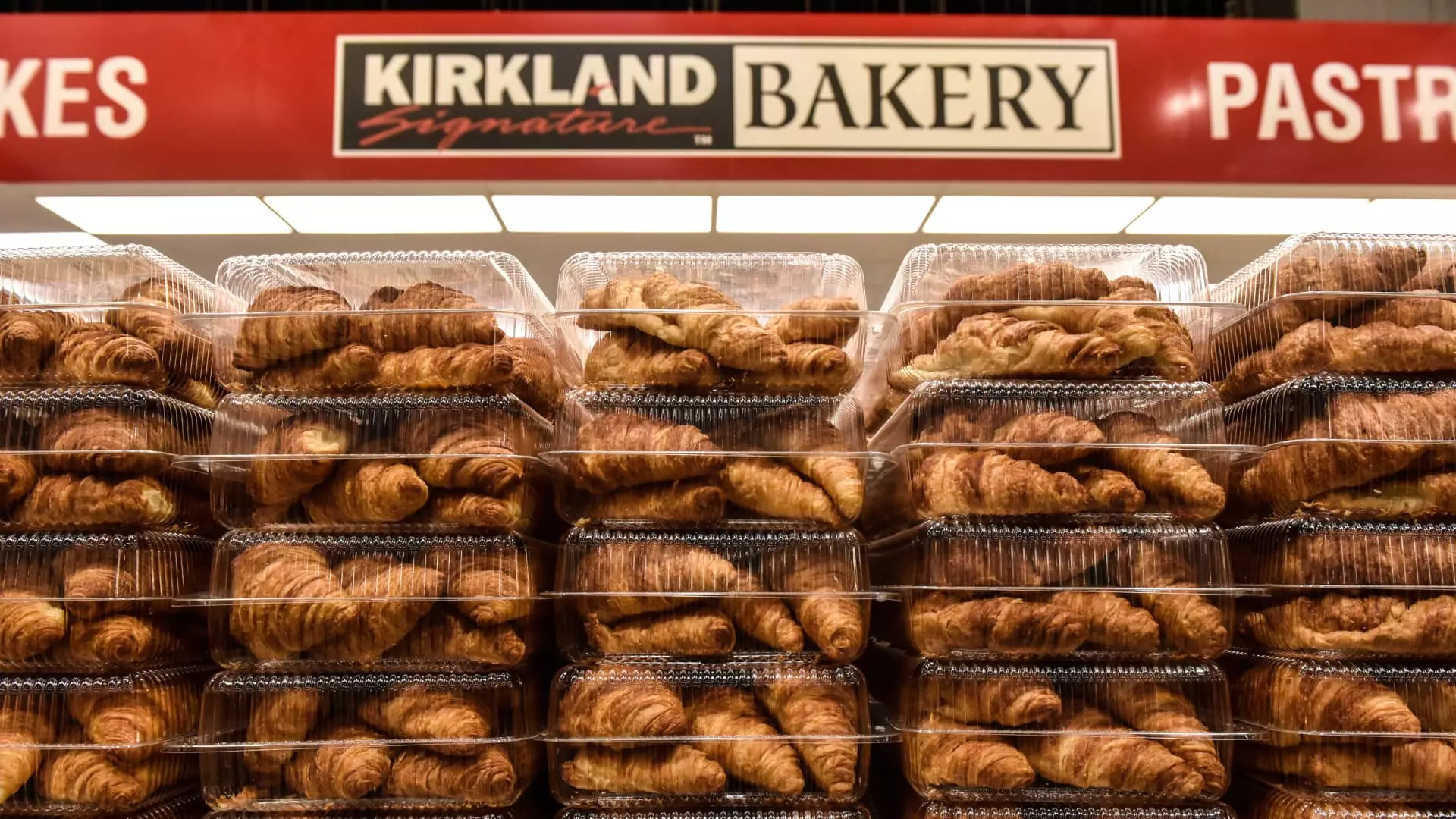Costco Wholesale Corporation has long been hailed as a retail titan, showcasing remarkable growth and resilience, especially in its third-quarter results. With sales projected to hit a staggering $275 billion, many analysts have latched onto Costco as a representation of success in a tumultuous retail landscape. However, beneath the surface of optimism lies a cautionary tale that warrants serious attention. A closer examination reveals significant issues that could undermine Costco’s promising facade, making it crucial for investors and consumers alike to rethink their uncritical adoration for the brand.
Discounted Growth: Is Costco’s Expansion Sustainable?
Despite boasting impressive numbers, there are whispers in the investment world suggesting that Costco’s current growth trajectory might be unsustainable. The projections of a mere 3.4% upside for the next twelve months hint at stagnation following its meteoric rise from 2023 to 2024. Analysts like those from Bernstein have aptly noted that the stock appears “priced for perfection,” illuminating a severe risk: if future growth does not match investor expectations, a significant correction could ensue.
Is Costco’s rapid expansion masking the fact that its best days could be behind it? With a market that often rewards innovation and adaptability, Costco’s traditional warehouse model may not resonate with a changing consumer landscape that increasingly favors convenience and online shopping. While the company claims to be spinning its wheels for decades of future growth, reality suggests that stagnation could easily follow impressive prior performance.
Customer Loyalty: A Double-Edged Sword
Costco’s membership model has often been spotlighted as a cornerstone of its success, fostering enduring loyalty among its customer base. However, this loyalty could be a double-edged sword. As consumer preferences shift, sticking to a rigid membership-based model could isolate potential customers who are hesitant to commit upfront. More nimble competitors are catering to this new consumer mindset by offering flexibility without long-term commitments.
Furthermore, loyalty, while strong, is also fragile. A small slip in quality, price, or experience can uproot even the most trusted relationships. It isn’t merely about being a favorite; it’s about adaptability and continued value creation. When faced with heightening economic pressures and evolving shopping habits, loyalty does not guarantee longevity.
Trade Turbulence: Tariff Implications
Analysts have pointed out that Costco is well-positioned to handle the evolving U.S. trade policies and potential tariff headwinds. But one must question, to what extent? The company’s apparent ability to weather these storms comes with assumptions about future political stability and consumer sentiment around trade. As evidenced by unpredictable global events, relying solely on mitigation strategies could be a flimsy safety net. Trade wars and tariffs can easily turn from mere “potential challenges” into immediate crises that cut into profits.
Moreover, if Costco’s tagline remains centered on low prices, any hiccup in its local supply chain due to tariffs could frustrate price-sensitive customers. The company may find that its loyal clientele isn’t as insulated from the realities of price increases as analysts hope.
Valuation Woes: Attractive or Overpriced?
Costco’s impressive performance has led to analysts giving it ratings that reflect its perceived value, yet concerns linger regarding its elevated valuations. The euphoria surrounding Costco’s stock prices raises a crucial question: can the company sustain the lofty expectations set by analysts? An endorsement from a firm like Morgan Stanley, with an 18% upside target, suggests optimism; however, being “overweight” in a stock with sky-high expectations often leads to substantial risk.
Investors should assess whether the excitement surrounding Costco aligns with objective financial metrics. As the company’s pricing strategy evolves in response to market conditions, a broader assessment of its long-term viability and risk-reward balance becomes imperative.
Final Thoughts: Guarding Against Complacency
While Costco’s recent success is undoubtedly commendable, it is essential to scrutinize some of the underlying factors that could impede future growth. Unwavering optimism can breed complacency, and in the ever-shifting landscape of retail, companies must remain agile and aware of market trends. Rather than assuming perpetual success, stakeholders must be vigilant, recognizing that challenges could arise just as suddenly as opportunities may present themselves. The future of this retail giant may be much more nuanced than the jubilant headlines suggest—unwavering loyalty may remain, but complacency could be its Achilles’ heel.

